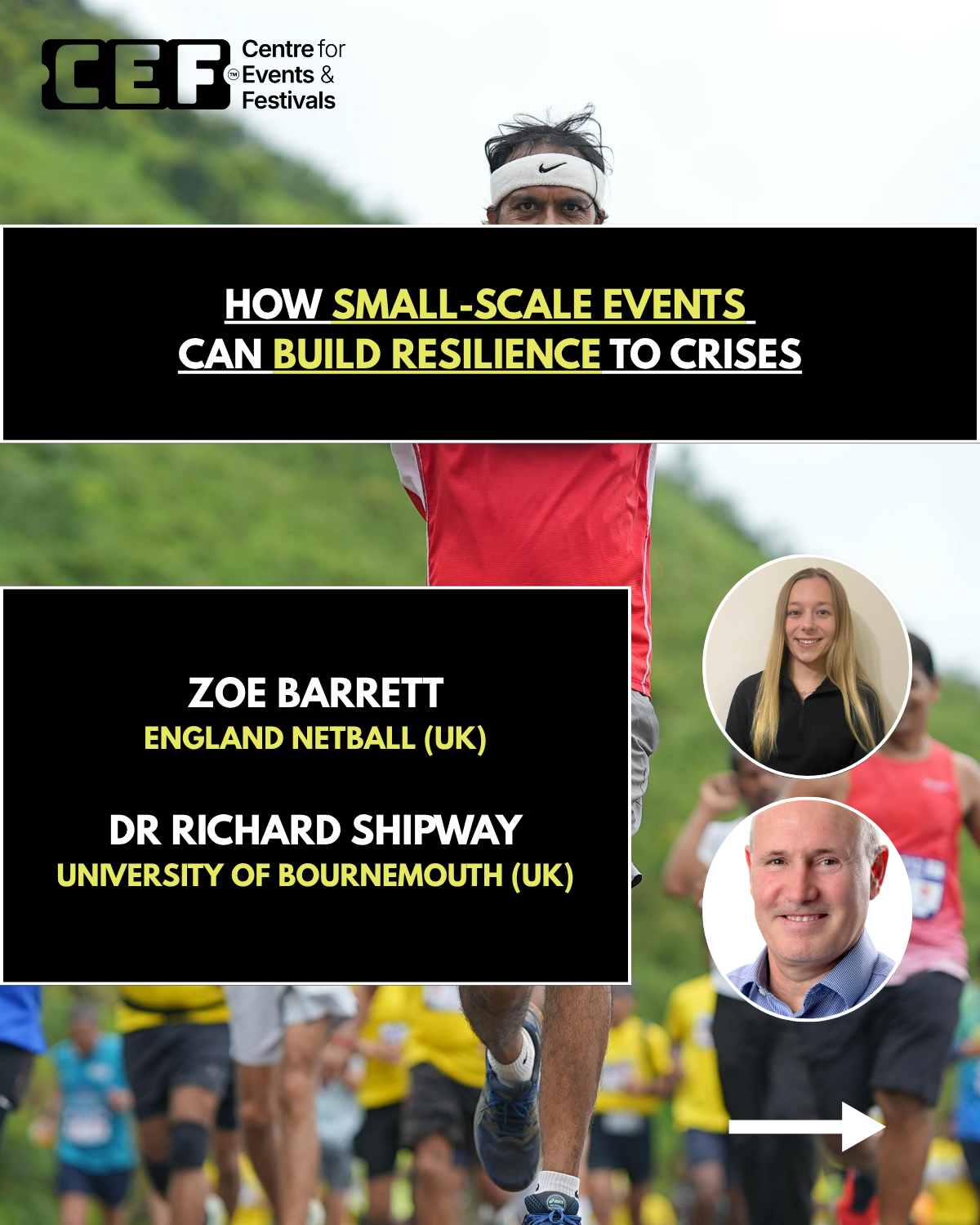
CEF INSIGHTS
CEF Insights are short, accessible “Harvard Business Review-style” articles written by industry experts and professors.
Each article aims to introduce, inform, and inspire readers with new ideas, frameworks, practices, and policies focused on a specific topic, issue or challenge, offering action-focused solutions to help deliver great events and festivals.
Social Impact | Evaluation | Intentionality | Development
Atmosphere | Fan Experience | Event Design | Ritual | Fandom
Live events | Experience economy | Design | Community | Access
Social impact | legacy | wellbeing | inclusion | community
Field Configuring Events | Theory of Change | Systems | Legacy
Culture | Festivals | Social Legacy | Regeneration | Funding
Sustainability | Scope 3 Emissions | Governance | Fan Travel
Competitive advantage | Blue Ocean Strategy | Differentiation
Event Portfolios | Strategic Integration | Resilience | Sustainability
Safety | harassment | exclusion | policies
Social sustainability | Equity | Community impact | Event ethics
Inclusion | Legacy | Inequlity | Community Voice | Birmingham
Volunteering | Experience | Motivation | Community | Respect
Rural Pride | Visibility | LGBTQ+ | Resilience | Activism
Associations | Rotation | Mobility | Geography | Bidding strategy
Community Trust | Over-Eventism | Resistance | Development
Parasport visibility | Disability rights | Legacy | Societal impact
Human Rights | Accountability | Participation | Structural Reform
High-stakes decisions | Decision science | Real-time management
Resilience | Entrepreneurial Agility | Crisis Adaptation
Legacy | Collaborative Governance | Networks | Leadership
Segmentation | Impact | Audience Insight | Experience Design
Managing Crowds | Trust | Communication | Siloed Planning
Social Media | Digital Infrastructure | Legacy | Data | Ethics
Disability Sport | Grassroots Participation | Inclusive Legacy
Fandom | Social Identity | Place Attachment | Event Design | Digital Engagement
Berlin 1936 | Mega-events | Propaganda | Soft power | Spectacle
Mega-events | Urban transformation | Legacy planning | City-first strategy | Sustainable development
Mega-events | Nation branding | National unity | Sport politics | Cameroon
CONIFA | Unrecognised nations | Sport politics | Soft power | Football events
Mega-events | Resistance | Olympics | Community | Legitimacy
Mega-events | Soft power | Urban exclusion | Authoritarian practices | Potemkinism
Volunteer legacy | Mega-events | Community engagement | Inclusion | Event planning
Public Space | Inclusion | Monuments | Protest | Event Design
Legacy | Accountability | Mega-Events | Equity | Development







































































